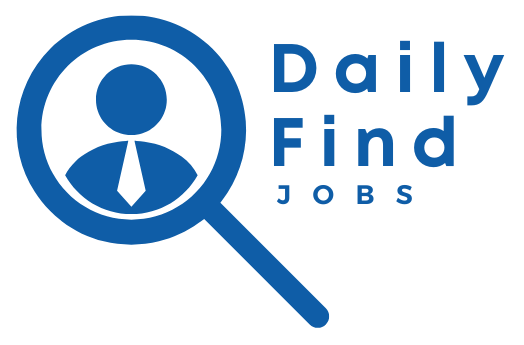Heading into a job interview can be nerve-wracking, but preparation is key. One crucial aspect of interviewing that candidates often overlook is asking insightful questions to the interviewer. Doing so not only demonstrates genuine interest but also provides you with valuable insights into the company, culture, and career prospects. In this article, we explore essential questions to ask your interviewer, helping you stand out and make informed decisions about your potential future workplace.
Why Should You Ask Questions?
Asking questions during an interview is essential to showcase your interest in the role and the company. Inquisitive candidates stand out because they actively engage in the conversation, demonstrating preparedness and enthusiasm. It also opens a dialogue that can provide insights into
the company’s inner workings
and help determine if it’s the right fit for you.
Interviews are not one-sided evaluations. By posing thoughtful questions, you can assess if the job aligns with your career aspirations and values. It’s your opportunity to gather valuable information that might not be available through job descriptions or company websites.
Moreover, asking meaningful questions allows you to clarify any doubts about the role. This proactive approach enables candidates to address any misunderstandings before the position is offered. By doing so, you can avoid potential mismatches in expectations.
Understanding the Company Culture
In a job interview, gaining insight into company culture is crucial. Company culture affects everything from employee satisfaction to company performance. When discussing this topic with your interviewer, consider asking about the work environment, team dynamics, and management philosophy. You might want to inquire: 🌟 How would the team describe their dynamics and the department’s overall atmosphere? 🌟 How does the company approach diversity and inclusion in the workplace? 🌟 What are some initiatives the company has taken to promote employee well-being and a positive work environment? 🌟 How does the organization recognize and celebrate employee achievements and contributions?
Understanding your potential fit within the company’s culture
can greatly impact your satisfaction and success in a new role. Remember, this is as much about you determining if the company is the right place for you as it is about the company evaluating if you’re the right fit for them. 🌟
Clarifying Job Responsibilities
When discussing job responsibilities with your interviewer, it’s essential to get a clear picture of the everyday tasks you’ll be handling. You could ask, “What does a typical day look like in this role?” This helps you understand the routine and any specific expectations the company might have from you.
Furthermore, inquire about the objectives and goals associated with the position. Posing questions like “What are the key performance indicators for this role?” can give you insight into how success is measured. Knowing whether these align with your professional strengths and interests can significantly influence your decision.
Team Dynamics: It’s also valuable to know who you’ll collaborate with. Asking questions such as “Who will I be working with directly?” or “How is the team structured?” can provide clarity on the team environment and communication flow.
Finally, ensure you understand any potential overlap in responsibilities. A question like “Are there any tasks outside of the usual scope that I’d be expected to manage occasionally?” can prepare you for any additional duties that might arise, ensuring you’re not caught off guard later on.
Growth Opportunities and Career Development
During your interview, it’s important to understand the potential for growth and career development within the company. Asking questions about these topics can reveal a lot about what the future holds if you accept the position.
First, consider asking about the company’s promotion policies. Inquire if there is a structured path for advancement or if it operates more organically. Understanding the framework of how employees move up can help you know what to anticipate in terms of career progression.
You might also want to explore the company’s policies on professional development. Are there opportunities for further training, workshops, or courses?
Continuing education
can be vital for staying updated with new skills and developments in your field, so it’s key to know if the company supports this.
Additionally, it helps to ask if there are mentorship programs available. Having a mentor can significantly impact your growth by providing guidance and insights you may not receive otherwise.
Discussing annual reviews is another crucial aspect. It’s beneficial to ask how the process works and what criteria are used for evaluating performance. This can also tell you a lot about how success is measured within the organization.
Finally, learning about potential projects or teams you might join in the future can shine a light on growth opportunities. Are there chances to lead initiatives? Knowing this can help you gauge how your career might evolve in the role. When you have a clear understanding of these growth and development opportunities, it can help you make an informed decision about whether the company is the right fit for your career aspirations.
Evaluating Work-Life Balance
One critical aspect to evaluate during an interview is the company’s approach to work-life balance. It’s essential to gather insight into how a potential employer supports employees in achieving a healthy equilibrium between work duties and personal life. A good starting point is to inquire about the company’s official policies on flexible working hours and remote work opportunities, as these can provide substantial clues about their commitment to employee well-being.
Another helpful tactic is to ask about wellness programs and how the company supports mental health and personal time. Questions like, “Could you share examples of how the team maintains a good balance during peak periods?” or “What strategies does the company have in place to manage workload effectively?” can reveal the priority given to maintaining equilibrium.
Furthermore, understanding the volume of work expected is crucial. Consider asking, “What does a typical work week look like here?” This question not only gives you insight into the number of hours worked but also into the pace and expectations set. Delving into whether there are provisions for dealing with overtime and how performance is measured can also lend perspective into the realistic demands of the job.


